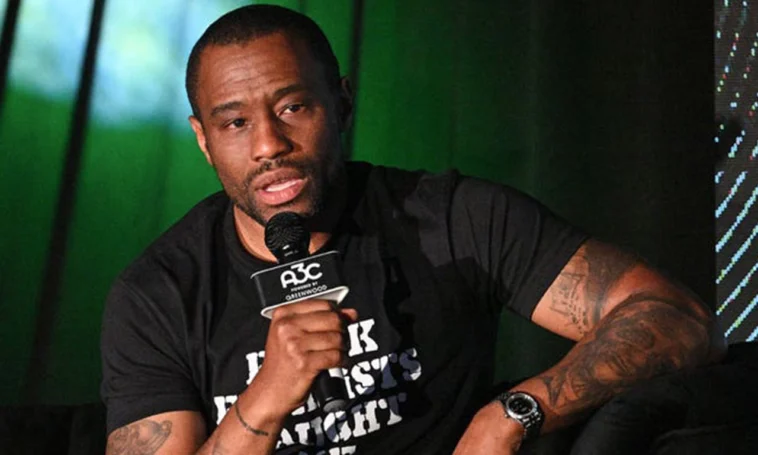Marc Lamont on ecouraging His Child to Engage in Anti-Israeli Campus Demonstrations. CUNY professor and former CNN contributor Marc Lamont Hill has sparked controversy by encouraging anti-Israel college students, including his own child, to continue their disruptive protests on campus. In an interview with The Blaze host Jason Whitlock, Hill expressed solidarity with the demonstrators and agitators, saying that he has told his own child to join their peers and “tear some s— up” on campus, as long as they stay focused on their studies.
Hill’s words come as anti-Israel protests on college campuses have spread nationwide, featuring police clashes with agitators, hundreds of arrests, and even the injury of multiple Jewish students. Hill, an Al Jazeera host, told Whitlock that he’s fine with the protests, stating, “So, to me, at the end of the day, no problem, no problem at all with disruption.” He expressed that there should be some limits to what agitators are doing but added that people should be made “uncomfortable” by their demonstrations.
Hill has been a longtime critic of Israel and has made controversial statements in the past. Following Hamas’ October 7 massacre in Israel, he appeared to rationalize the attack while giving a speech at a pro-Palestinian protest at Philadelphia City Hall.
He said, “As much as the news media wants you to think that history started on Oct. 7, the Palestinian people have been catching hell for over 100 years.” Anti-Defamation League CEO Jonathan Greenblatt responded, calling Hill’s comments “despicable” and stating that Hamas is a “genocidal terrorist organization hell-bent on killing Jews.”
Hill was fired from CNN in 2018 after he called for a “free Palestine from the river to the sea,” an expression widely seen as a declaration for the elimination of Israel, during a speech at the United Nations. At the time, Hill denied he was calling for Israel’s destruction, saying he was talking “about the need to return to the pre-1967 borders, to give full rights to Palestinian citizens of Israel, and to allow right of return.” However, his recent comments have sparked further controversy and concern.
“Again, you don’t have to tear up the whole university, but making the university uncomfortable is exactly what you are supposed to do,” he said.
The protests on college campuses have been a source of tension and debate, with some arguing that they are a legitimate form of free speech and others claiming that they are disruptive and hateful. The situation has sparked a national conversation about the role of universities in addressing social and political issues, as well as the limits of free speech.
Hill’s involvement in the controversy has added fuel to the fire, with many critics accusing him of encouraging violence and disruption. His comments have also raised questions about the role of professors and educators in shaping the political views of their students.
In response to Hill’s comments, several organizations and individuals have spoken out against him. The Anti-Defamation League released a statement condemning Hill’s comments, saying that they “promote hate and violence.” The Jewish Federation of North America also released a statement, saying that Hill’s comments “are not only offensive, but they are also dangerous.”
Several politicians have also weighed in on the issue, with some calling for Hill to be fired from his position at CUNY. Others have called for greater action to be taken to address the growing trend of anti-Semitism on college campuses.
The situation highlights the ongoing tensions and divisions in American society, particularly on college campuses. The protests and Hill’s comments have sparked a national conversation about free speech, academic freedom, and the role of universities in addressing social and political issues. The incident also raises questions about the role of professors and educators in shaping the political views of their students and the limits of free speech.





Join the Community and Be a Part of the Conversation
You must be logged in or registered to post a comment.